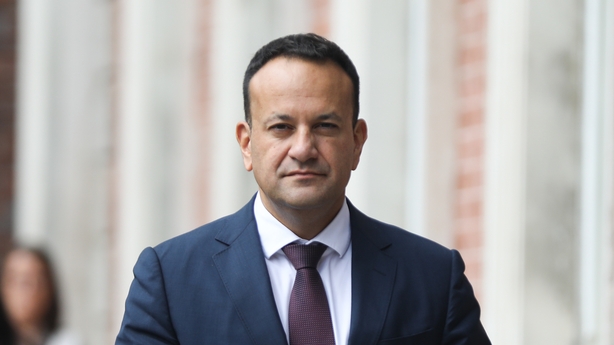Non-union employers may face penalties for failing to negotiate with trade unions under a new plan on the future of collective bargaining and industrial relations.
The Government has published the final report of a high-level working group that was set up to review collective bargaining and the industrial relations landscape in Ireland.
The report recommends that there be 'good faith engagement' between employers and unions.
Under the proposal, if a union represents 10% or more of a grade, group or category within a company, the employer will be obliged to engage in good faith with the union and can been ordered to do so by the Circuit Court.
"Failure to comply with such an order of the Circuit Court is an offence and a person guilty of such an offence will be subject to a pecuniary penalty," the report states.
A trade union would not be able to make any further application to the Labour Court for a good faith engagement for a period of three years.
The high-level group was chaired by Professor Michael Doherty of Maynooth University and included representatives of unions, employers and the Government.
The report is also recommending the strengthening of Joint Labour Committees (JLCs), independent bodies made up of equal numbers of employer and worker representatives that set employment conditions and minimum rates of pay for workers in certain sectors.
Another recommendation relates to the appointment of technical assessors by the Labour Court who would be able to assist the court by gathering information about pay rates in specific sectors.
The report of the high-level working group comes ahead of a new EU directive which will require member states to facilitate much greater collective bargaining.
"The recommendations in this report will ensure Ireland is well placed to respond to EU developments in relation to collective bargaining," Taoiseach Micheál Martin said.
"The report will now be fully considered by Government, with a view to how its recommendations can be best implemented," he added.

The high-level group was established by Tánaiste and Minister for Enterprise Trade and Employment Leo Varadkar.
"I have asked my Department to consider the report, consult with stakeholders and develop proposals for implementation which would be subject to a further Government decision," Mr Varadkar said.
The Irish Congress of Trade Unions (ICTU) said the recommendations in the report will, through increased collective bargaining coverage, provide new opportunities to achieve decent working and living standards for hundreds of thousands of workers.
"The Executive Council of ICTU endorses the group's recommendations and believes them to be crucial to aligning our industrial relations procedures with our EU peers and for delivering improved outcomes for workers and employers as well as for society and the economy as a whole," said Patricia King, General Secretary of the Irish Congress of Trade Unions.
Business group Ibec welcomed the publication of the report.
"It is important to look forward, for business to work to shape the right conditions for future engagements and maintain the best aspects of our existing, very stable industrial relations environment," said Ibec CEO Danny McCoy.
The Labour Party welcomed the report’s recommendations and called on the Government to implement the measures as quickly as possible.
"Labour wants to see the recommendations of this landmark report implemented in full and without any unnecessary delay," said Labour spokesperson for workers rights, Senator Marie Sherlock.






